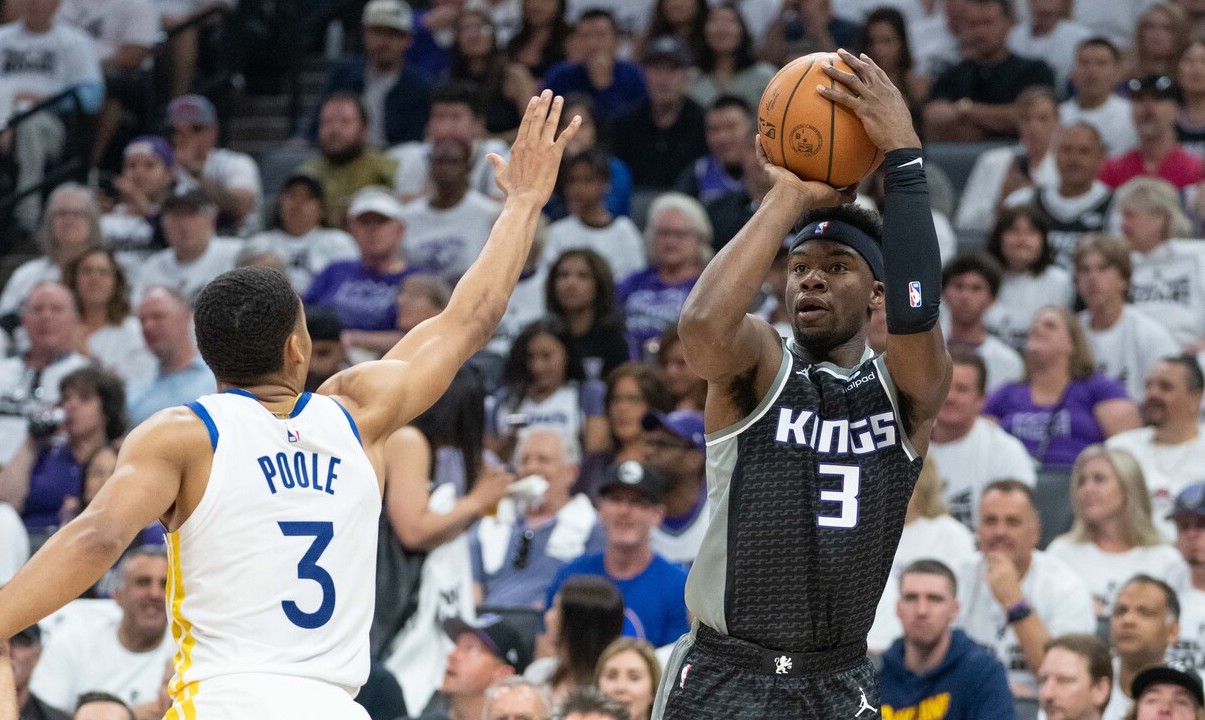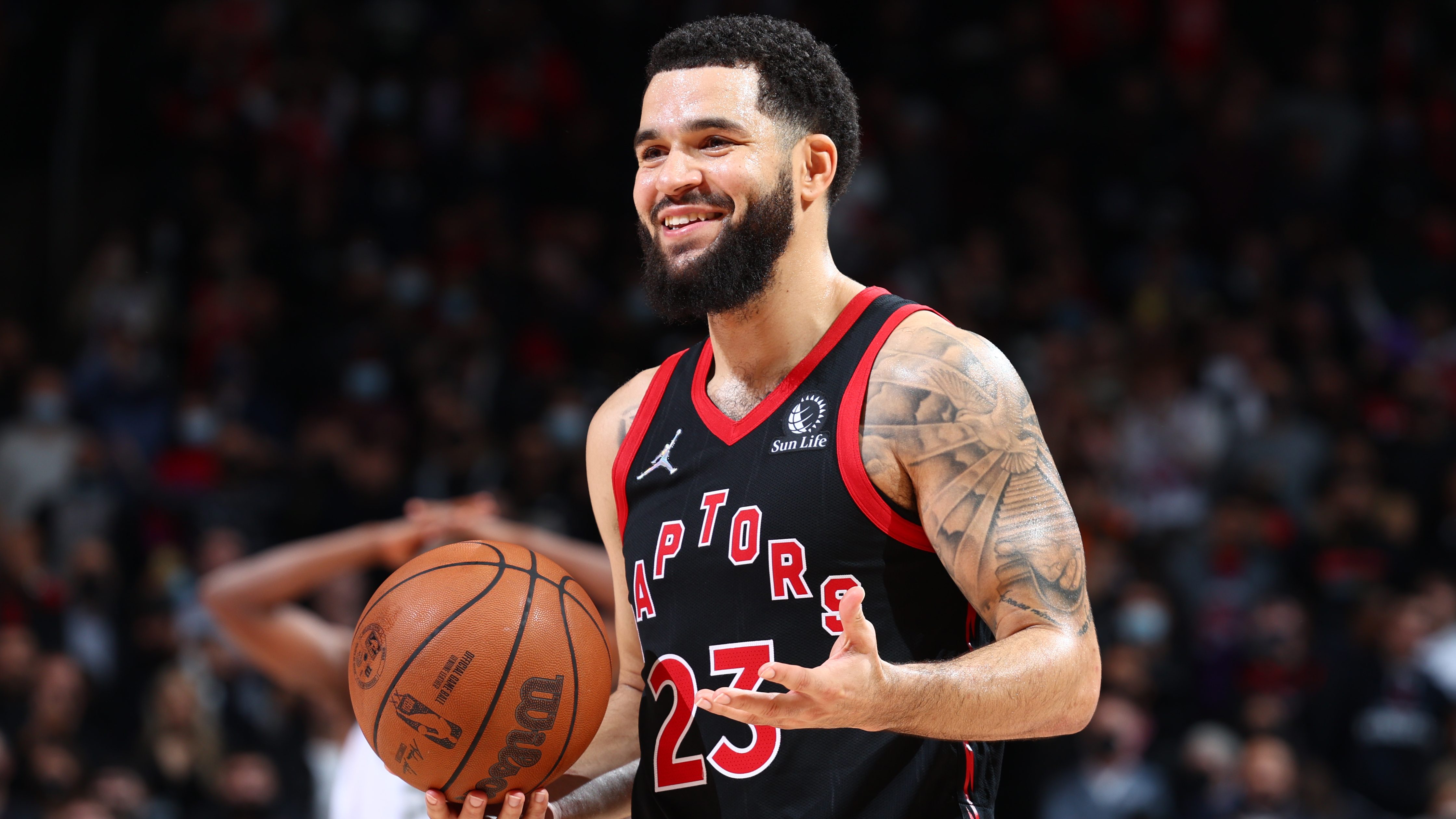The Boston Celtics launched into the new league year by agreeing to an extension with a core piece of their roster — just not necessarily the one that we thought would be in the spotlight.
While we wait to see if Jaylen Brown signs the most lucrative supermax contract in NBA history, the Celtics reportedly came to terms on a two-year, $60 million extension with recently acquired big man Kristaps Porzingis.
Landing a heading-into-their-prime center coming off maybe the best season of their NBA career at below-market rate simply does not happen. While so much of this pact will be judged on whether Porzingis is able to stay healthy for the duration of the deal, and the Celtics are rolling the dice while extending without seeing the fit next to their other core players, there is good chance this could look like a bargain deal.
Adding the extension to the $36 million final year of Porzingis’ current pact, the Celtics essentially added the 7-foot-3 big man on a 3-year, $96 million deal, so an average annual value of $32 million. For the 2024-25 season, when Porzingis’ new extension starts, there is a chance he will rank outside the top 50 most expensive contracts in the league.
Get New England news, weather forecasts and entertainment stories to your inbox. Sign up for NECN newsletters.
Again, there are undoubtedly injury and fit risks. The Celtics will eventually have a very bloated cap sheet as supermax extensions for Brown and Tatum would begin before the end of Porzingis’ deal. But compare the price point for Porzingis to other deals inked on the first day of free agency and it feels thrifty.
Porzingis would have been the best available big man on the market if he opted out of the final year of his current deal. Instead, he signed with Boston for $17 million less than his max possible July extension. With another healthy and productive season, it’s not outrageous to think Porzingis could have commanded $40-plus million per season as an unrestricted free agent next summer. The Celtics are banking on his health; Porzingis is sacrificing money with a chance to be part of a legitimate contender.
In Dallas, the Mavericks spent $126 million over three years to bring back 31-year-old, drama-infusing Kyrie Irving. In Milwaukee, the Bucks spent $102 million while crossing their fingers on 31-year-old Khris Midldeton’s balky knees.
The Celtics, meanwhile, extended Porzingis at a number lower than his AAV from the original supermax contract he signed in 2019. Players at Porzingis’ age, size, and potential rarely leave money on the table.
The extension mitigates some risk for Boston. The Celtics surely didn’t want to move Marcus Smart for a one-season rental. If, for any reason, the fit doesn’t work with Porzingis in Boston, the Celtics could easily move a healthy Porzingis in a trade, especially in a league where $50+ million salaries will eventually be the norm for top-end talent.
More Celtics coverage
The long-range cap forecast also gets a little less cloudy with Porzingis on the books at reasonable money.
If Brown’s supermax deal pays him the full 35 percent supermax, his starting salary for the 2024-25 season would be roughly $52 million. With Porzingis’ new deal, the Celtics would be committed to roughly $117 million overall for a Big Three when including Tatum's $34.9 million salary in the final year of his rookie extension. That’s 78 percent of the total cap for the 2024-25 season but still leaves the team $84 million below the supertax threshold. Getting off Malcolm Brogdon’s salary next summer would leave Boston committed to only $46 million in remaining salaries in Derrick White, Robert Williams III, Al Horford, Sam Hauser, and Oshae Brissett.
The Celtics are set up to potentially dodge the second apron in each of the next two seasons before having to make tougher financial decisions when Tatum’s supermax launches in the summer of 2025.
The Brissett signing on a minimum deal infuses a high-energy, low-cost wing who will provide deep depth behind the Jays. His impressive game against Boston in February 2022 was reason enough to roll the dice.
Boston’s free-agent focus shifts back to Brown now. The team was able to put a five-year, $300-plus million supermax deal in front of him as soon as the calendar flipped to July. Both sides have motivation to put ink to paper.
The other lingering question: What happens with Grant Williams? As cap space evaporates around the league, the Celtics will wait to see what sort of offers Williams receives in restricted free agency. The ability to pay Williams long term likely hinges on whether Brogdon sticks on the roster, this after the Celtics tried to deal him in the first iteration of the Porzingis trade.
If Boston doesn’t want to hardcap itself by using the $5 million taxpayer midlevel then the team is limited to minimum contract signings like Brissett this summer. The Celtics will hope that, as the market plays out, veteran players might choose championship potential over a slightly larger payday.



